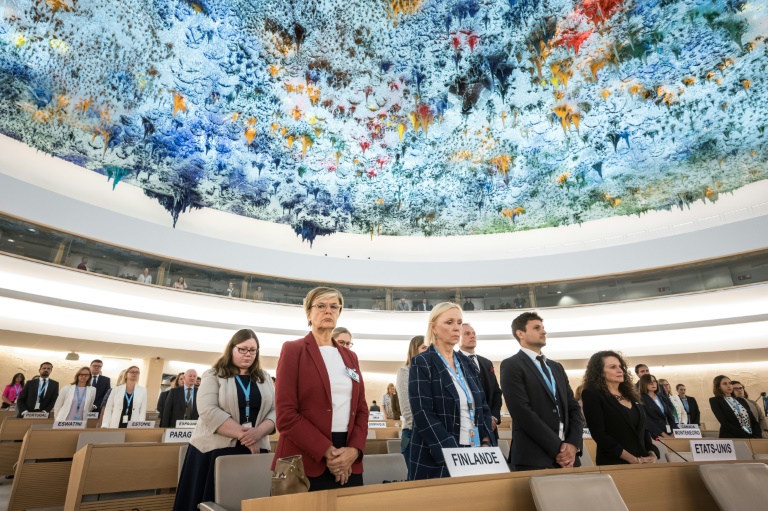UN rights council launches Sudan abuses probe

The UN Human Rights Council is holding its 54th session at the Palais des Nations in Geneva
Geneva – The UN Human Rights Council voted Wednesday to set up an independent fact-finding mission to probe alleged rights abuses in Sudan’s brutal fighting.
“There is … an urgent need to investigate and gather evidence of human rights violations and abuses and violations of international law, no matter where in Sudan they were committed, by whom they were committed,” Britain’s ambassador Simon Manley said, bringing forward the proposal on behalf of several countries.
The draft resolution was only narrowly passed, with Sudan fuming at the plan.
The 47-member council decided by 19 votes to 16 in favour of setting up the probe, with 12 countries abstaining.
Countries backing the resolution included Argentina, Britain. France, Germany, Mexico, Ukraine and the United States.
China, Malaysia, Pakistan, the United Arab Emirates and Sudan itself voted against the proposal. India and South Africa abstained.
The fighting in Sudan broke out on April 15.
The army, led by Abdel Fattah al-Burhan, has been battling the paramilitary Rapid Support Forces commanded by his former deputy Mohamed Hamdan Daglo, after the two fell out in a power struggle.
More than 9,000 people have been killed in the conflict so far, according to a conservative estimate by the Armed Conflict Location & Event Data project.
Fighting has displaced almost 4.3 million people within Sudan, while 1.2 million more have fled abroad, UN figures show.
Manley cited reports of civilians being indiscriminately bombed in their homes in the capital Khartoum, and of “horrific” sexual violence, including children being raped.
The mission will have three members, with an initial one-year mandate.
The probe will “investigate and establish the facts, circumstances and root causes of all alleged human rights violations and abuses and violations of international humanitarian law”, according to the resolution.
Khartoum’s ambassador Hassan Hamid Hassan slammed the council’s decision, which he said was being imposed “coercively” on Sudan.
He slammed the “politicisation, selectivity, double standards and non-respect of state sovereignty”.
“Those who sponsored the resolution should know that they have put all the scope of cooperation at stake,” he said, leaving little doubt as to whether Sudan will facilitate the investigation.
Following the vote, Hilary Power, UN Geneva director at the NGO Human Rights Watch, said the probe was an important step.
“Following decades of impunity, which has fuelled ongoing cycles of abuses, the Human Rights Council has today sent a strong message to perpetrators — that there may finally be consequences to their abuses,” Power said.
